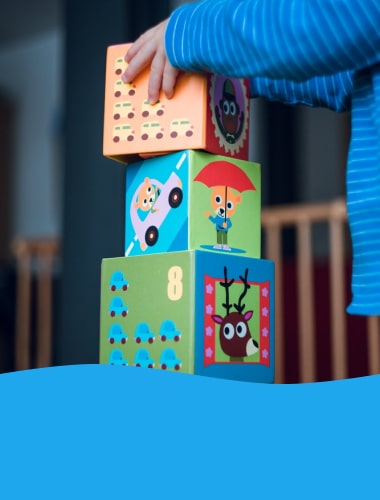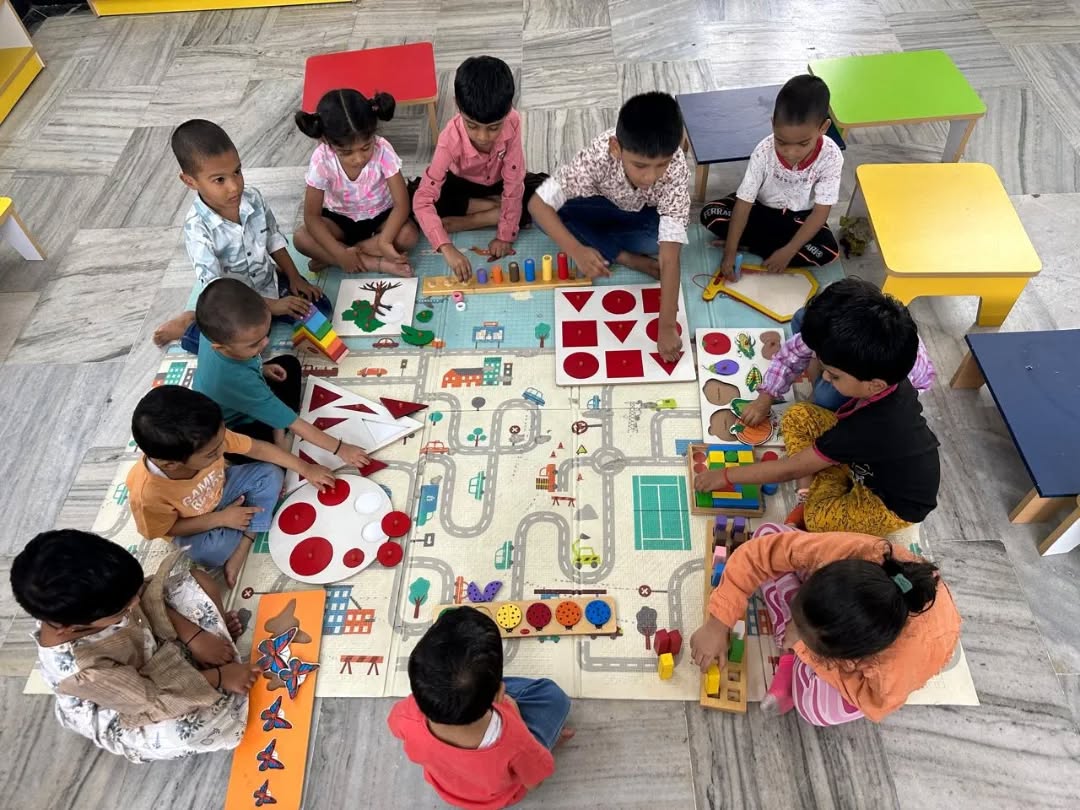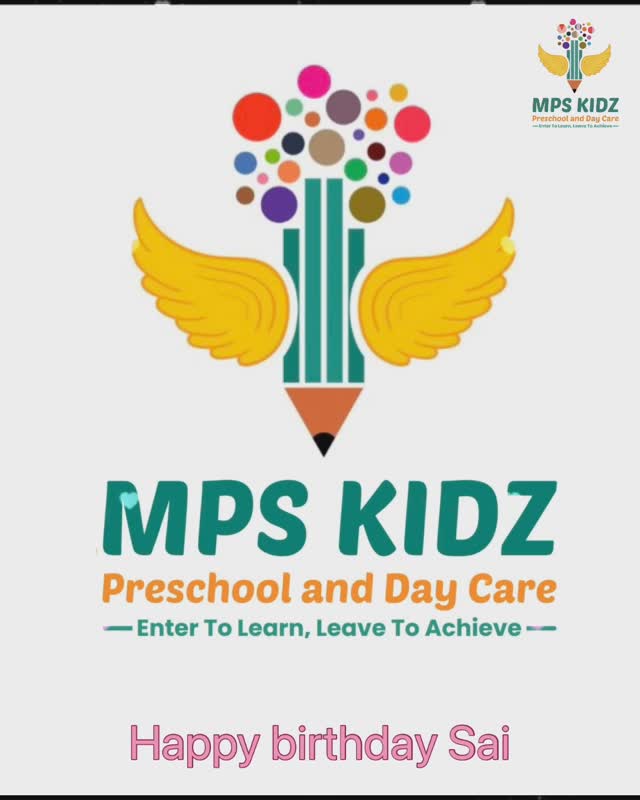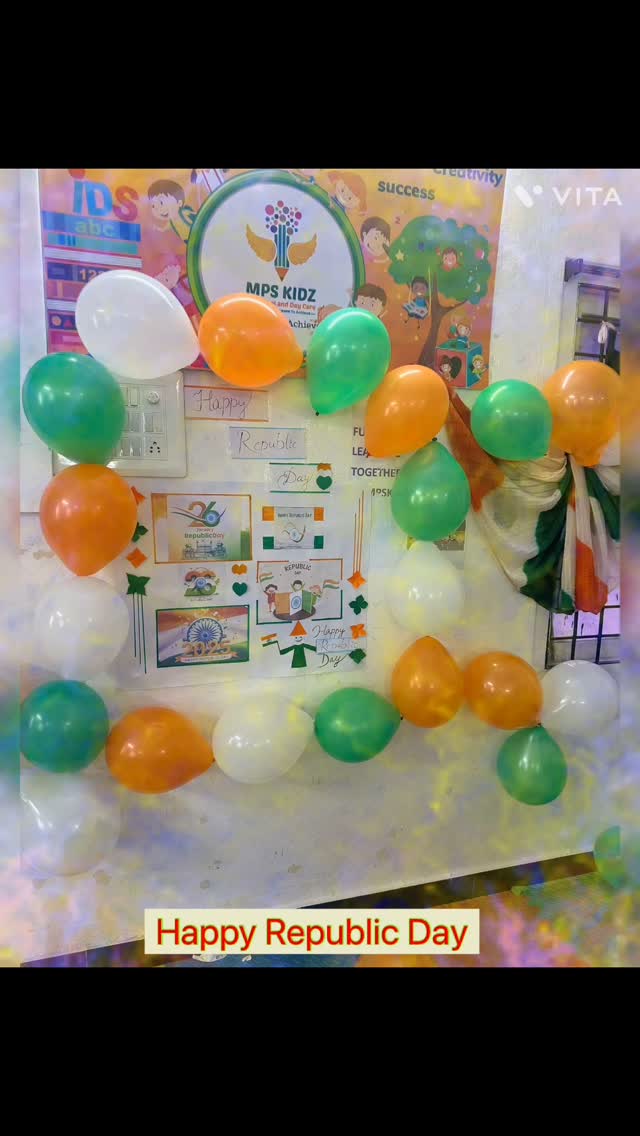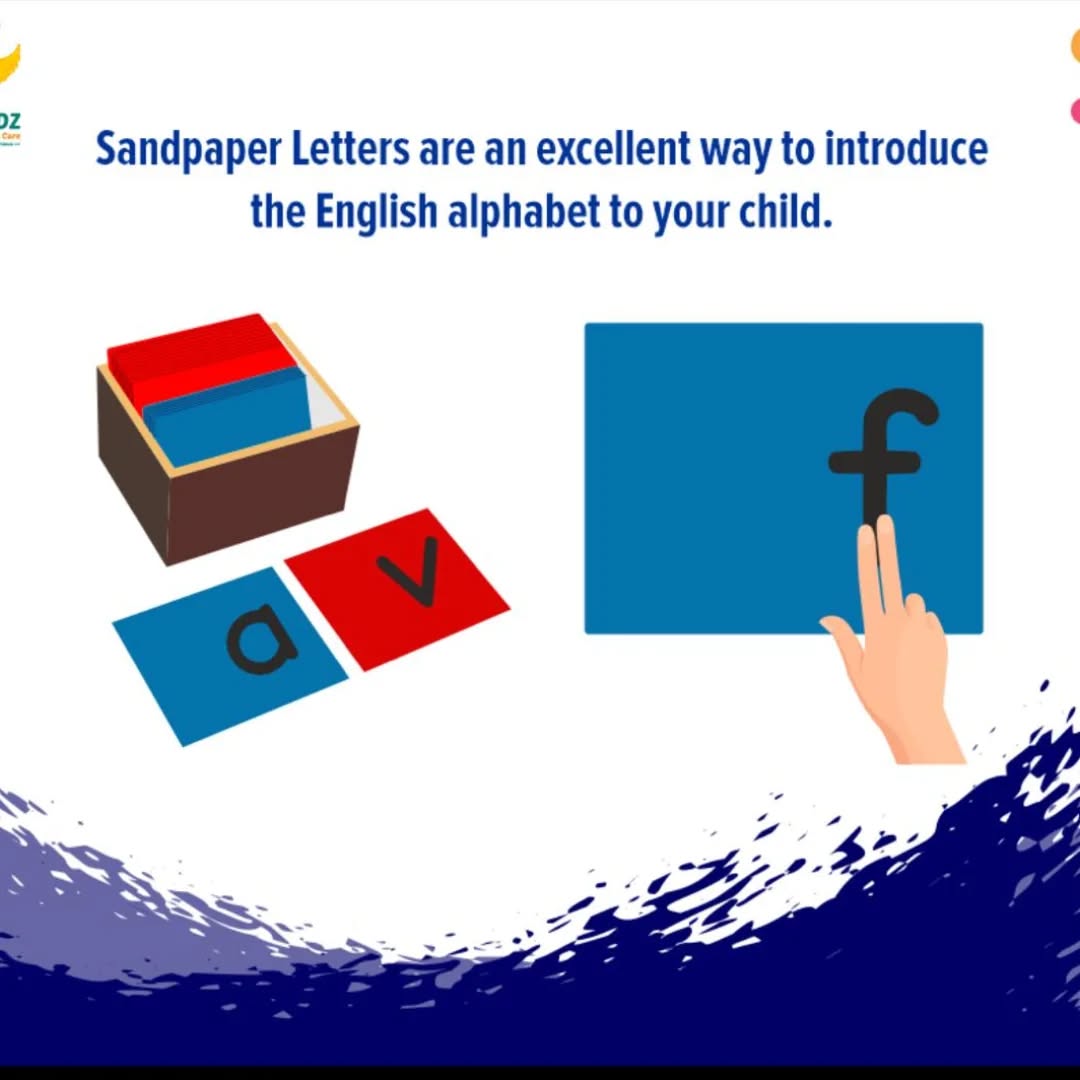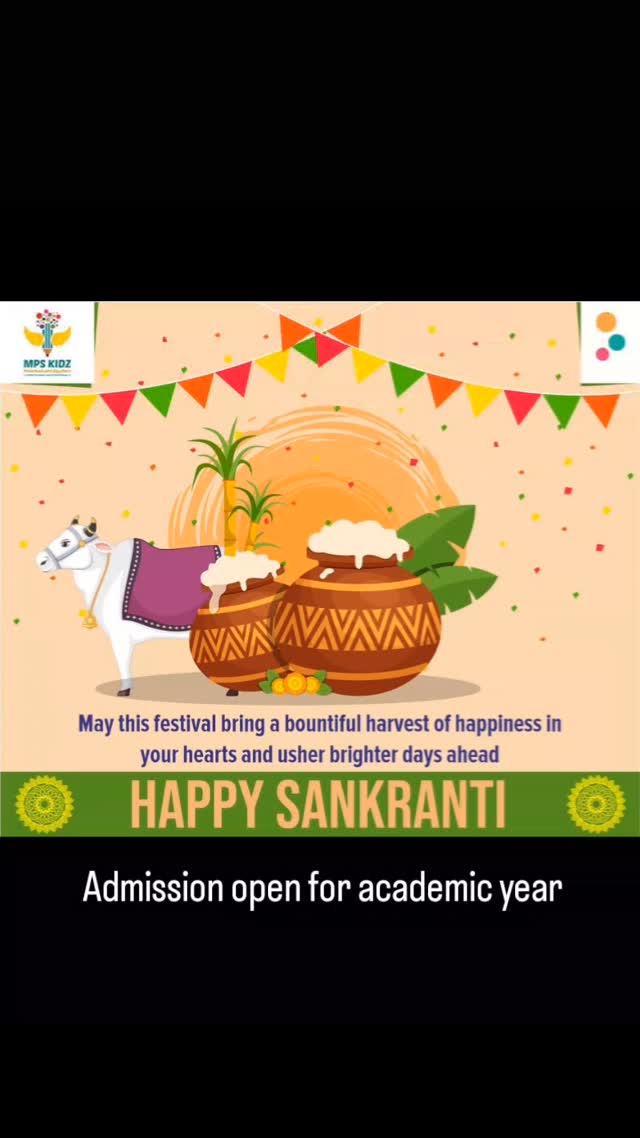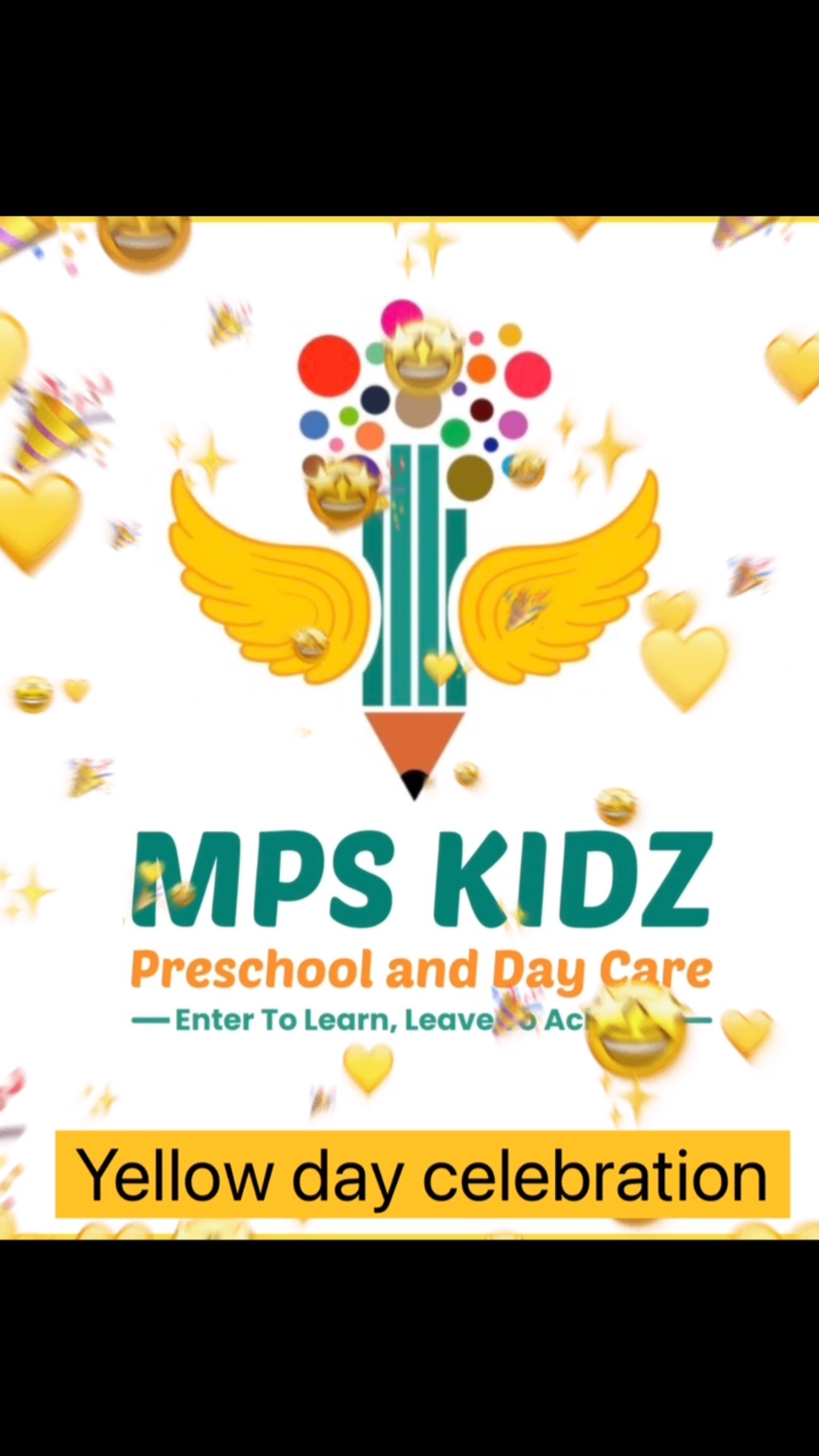MPSKIDZ
HIMAYATH NAGAR
We Teach to Be Active and Creative
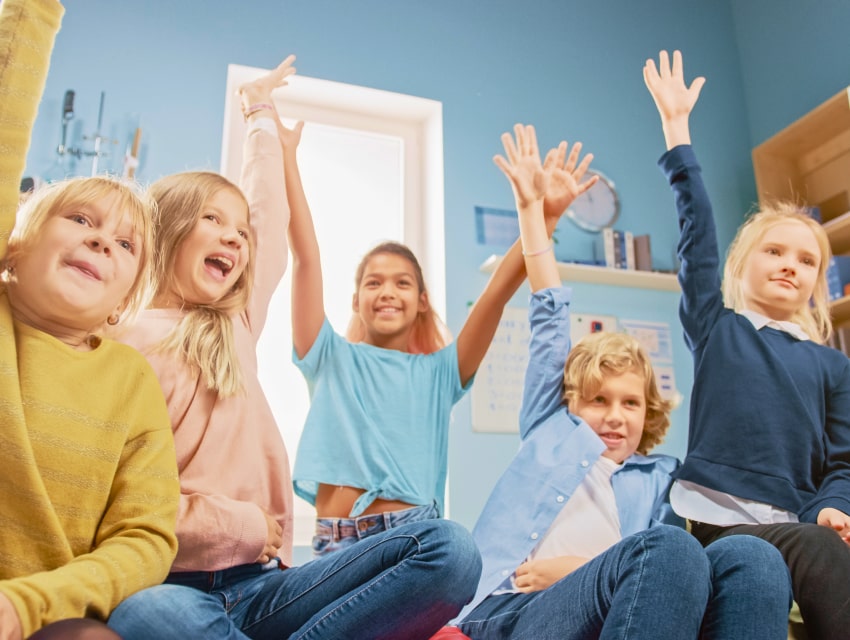
Why Choose MPS KIDZ?
We at MPS KIDS creates a healthy and happy environment for children to learn, explore and grow in a warm and caring atmosphere and to develop their unique potential with confidence under the guidance of qualified and trained teachers. Our learning environment is awesome with Well equipped and spacious classrooms and play area. We also provide wholesome and nutritious diet to ensure that the child develop healthy eating habits. MPS KIDS dedicated to provide a safe and secure environment to the students, we are fully equipped with CCTV. Partnered with KREEDO’S play based learning framework and curriculum, we emphasize on establishing a strong foundation in reasoning and creative skills and help kids to grow and become confident learners with healthy body, mind and spirit. We believe education extends far beyond the confines of traditional classrooms by encouraging our students to develop social, emotional, physical and cognitive skills in fun and engaging way by instilling a love for learning. Our mission is to empower the students to navigate the world that values innovation and adaptability.
1. Gross motor skills: running, jumping, climbing, balancing
2. Fine motor skills: coloring, drawing, puzzles,Tracing.
3. Sensory exploration: playdough, sand, water clay activity,clip activity and paper tearing.
Cognitive Development:
1. Shapes and colors recognition
2. Number concepts (1-10)
3. Basic problem-solving skills
4. Storytelling and listening
Language and Literacy:
1. Vocabulary building (50 words)
2. Rhyming and word association
3. Basic sentence structure
4. Storytime and book handling
Social-Emotional Development:
1. Sharing and taking turns
2. Emotional expression and recognition
3. Separation from parents (gradual)
4. Group play and interaction
Activities:
1. Music and movement
2. Arts and crafts
3. Sensory play
4. Outdoor play
5. Storytime and puppet shows
6. Colour day
7.festival themes
1. Refining gross motor skills (throwing, catching)
2. Developing fine motor skills (cutting, pasting)
3. Hand-eye coordination
Cognitive Development:
1. Number concepts (1-20)
2. Shape recognition (complex shapes)
3. Pattern recognition
4. Basic math concepts (addition, subtraction)
Language and Literacy:
1. Vocabulary expansion (100 words)
2. Phonological awareness
3. Basic reading skills (alphabet recognition)
4. Writing (tracing, scribbling)
Social-Emotional Development:
1. Cooperation and teamwork
2. Emotional regulation
3. Empathy and understanding others
4. Independence and self-confidence
Activities:
1. Themed play (e.g., kitchen, doctor’s office)
2. Art projects (painting, collage)
3. Music and movement
4. Storytelling and role-playing
5. Outdoor games (ball, obstacle course)
1. Advanced gross motor skills (hopping, skipping)
2. Refined fine motor skills (coloring, drawing)
3. Hand-eye coordination
Cognitive Development:
1. Number concepts (1-100)
2. Basic addition and subtraction
3. Shape recognition (complex shapes)
4. Pattern recognition and completion
Language and Literacy:
1. Reading simple words and phrases
2. Writing (tracing, writing names)
3. Vocabulary expansion (150 words)
4. Basic grammar concepts
5.Hindi orals.
Social-Emotional Development:
1. Leadership skills
2. Conflict resolution
3. Self-awareness and self-expression
4. Group cooperation and teamwork
Activities:
1. Phonics and reading
2. Math worksheets (basic addition, subtraction)
3. Art projects (complex crafts)
4. Role-playing and storytelling
5. Outdoor games (team sports, obstacle course)
6. Science and sensory exploration
Infrastructure
Extensive Knowledge Base For a Child
MPS KIDS provides exceptional early education to your little ones
Innovative Learning
Hands on Activities
Art Activities
Role play and skits
Music and Dance
Outdoor and indoor play
Nap time
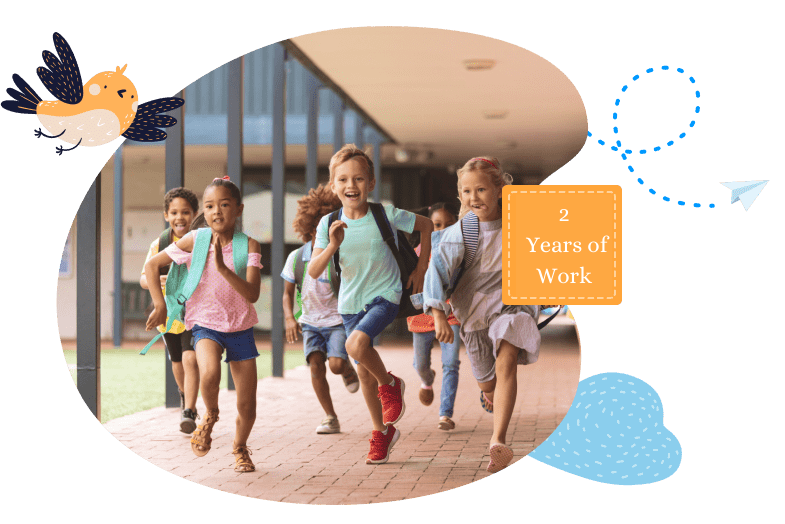
A Developed Child Is Our Mission
MpsKidz currently caters to Playgroup, Nursery (Pre-KG), Lower Kindergarten (LKG) and Upper Kindergarten (UKG), Class 1 and Class 2 typically for the age group of children between the ages of 2 to 8 years. In the National Education Policy (NEP) announced by the Government of India in 2020, The first five years of education which is also described as the Foundational Stage in the policy. Focuses on Literacy skills (Language), Numeracy skills (Maths), Themes (EVS), Sensorial skills and Cognitive skills as well as helps improve the socio-emotional quotient in children. All these areas of development always begin with play or activities first in the curriculum through our Kreedo lab. The child is then taken to abstraction through our Kreedo books which are again mapped to the practical activities the child does in the lab. We believe the best route to enable learning in children is through the “Concrete to Abstract” or “Practical to Theory” approach.
Purpose of Education
Our curriculum balances the four components. The core philosophy is inspired by the Montessori method. Each material has been designed following this philosophy. The teachers have been trained effectively on the philosophy, curriculum, and materials. Academically equipped and socially adept children are what we are striving to provide this world.
1. The philosophy.
2. The curriculum and methodology.
3. The learning tools are offered to the child.
4. The teachers who facilitate learning.

The core philosophy is inspired by the Montessori method. Every child is unique and special. Brain development and capacity to absorb concepts and learn is highest and rapid during 2 to 6 years of age. Hence it is important to expose the child to an environment that provides an appropriate stimulus of learning. Keeping in view each material has been designed following this philosophy. The teachers have been trained effectively on the philosophy, curriculum, and materials. Academically equipped and socially adept children are what we are striving to provide this world.
Our curriculum is focused on the following areas of development:
PHYSICAL DEVELOPMENT: Involves providing opportunities for children to be active and interactive and to develop their co-ordination, control and movement. Children must also be helped to understand the importance of physical activity and to make healthy choices in relation to food. Intelligence is an important factor to consider when a child comes to school.
INTELLECTUAL DEVELOPMENT: Intelligence is an important factor to consider when a child comes to school. Intelligence can be Inherent or acquired. Inherent intelligence a child achieve in accordance with genes whereas acquired intelligence is what a child gets with environmental factors like culture and education.
LANGUAGE DEVELOPMENT: Involves giving children opportunities to experience a rich Language environment to speak and listen to develop their confidence and skills.
CREATIVE DEVELOPMENT: Involves continuous experience with new things around them through variety of play based activities.
SOCIO-EMOTIONAL DEVELOPMENT: Helps child feel confident in building relationships, express how they feel.
• Teachers are facilitators
• Self-Learning Environment
• Each Child at his own pace
• Self-correction
• Inner discipline
• Daily observation and assessment
• Socially vibrant environment
• Encouraging the child’s inherent desire to do and learn.
Our curriculum has activities that are specifically designed to help a child in every area of development. These activities include.
• Individual learning with materials
• Small group activities in art, language, and gross motor skills
• Learning through a thematic approach
• Occasional support learning through role-plays, presentations, storytelling, Reading
• Field trips
• Project-based learning for older children
• Cultural celebrations
Our staff is trained to ensure that the curriculum objectives for each child is met consistently and to make difference in the lives of children creating joy, facilitate learning through play and hands on activities. We have an appropriate student-teacher ratio to ensure that every child’s needs are met so that they don’t excessively depend on an adult. Our teachers are prepared to make sure each child feel safe and secure. Our teachers also assess child’s progress by regularly evaluating their weakness, strength, liking and potential areas of enhancement.
The core philosophy is inspired by the Montessori method. Every child is unique and special. Brain development and capacity to absorb concepts and learn is highest and rapid during 2 to 6 years of age. Hence it is important to expose the child to an environment that provides an appropriate stimulus of learning. Keeping in view each material has been designed following this philosophy. The teachers have been trained effectively on the philosophy, curriculum, and materials. Academically equipped and socially adept children are what we are striving to provide this world.
Our curriculum is focused on the following areas of development:
PHYSICAL DEVELOPMENT: Involves providing opportunities for children to be active and interactive and to develop their co-ordination, control and movement. Children must also be helped to understand the importance of physical activity and to make healthy choices in relation to food. Intelligence is an important factor to consider when a child comes to school.
INTELLECTUAL DEVELOPMENT: Intelligence is an important factor to consider when a child comes to school. Intelligence can be Inherent or acquired. Inherent intelligence a child achieve in accordance with genes whereas acquired intelligence is what a child gets with environmental factors like culture and education.
LANGUAGE DEVELOPMENT: Involves giving children opportunities to experience a rich Language environment to speak and listen to develop their confidence and skills.
CREATIVE DEVELOPMENT: Involves continuous experience with new things around them through variety of play based activities.
SOCIO-EMOTIONAL DEVELOPMENT: Helps child feel confident in building relationships, express how they feel.
• Teachers are facilitators
• Self-Learning Environment
• Each Child at his own pace
• Self-correction
• Inner discipline
• Daily observation and assessment
• Socially vibrant environment
• Encouraging the child’s inherent desire to do and learn.
Our curriculum has activities that are specifically designed to help a child in every area of development. These activities include.
• Individual learning with materials
• Small group activities in art, language, and gross motor skills
• Learning through a thematic approach
• Occasional support learning through role-plays, presentations, storytelling, Reading
• Field trips
• Project-based learning for older children
• Cultural celebrations





